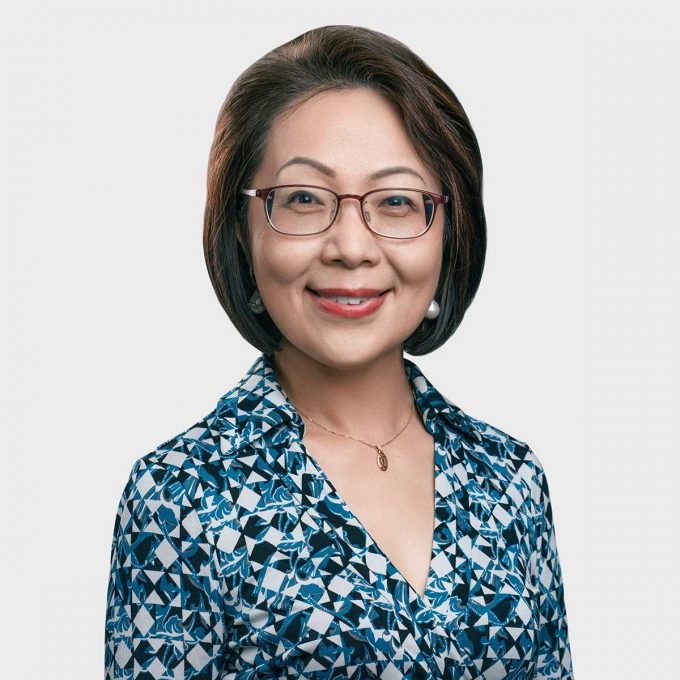Oct 31
Opportunity of the ‘Asian century’ sees Cayman build on its investment in the re


Yumei Zhang
Client Director at Saffery Trust
Dominic Lawton-Smith
Trust Director at Saffery Trust
Opportunity of the ‘Asian century’ sees Cayman build on its investment in the region.
The Cayman Islands has long been a favoured destination for Asian businesses, investors, family offices and UHNWIs with significant and complex holdings.
The recent move by The Cayman Islands to establish an office in Singapore was a significant step for the region, with jurisdictions around the world increasingly competing for globally mobile wealth and business.
For the most part, the British Virgin Islands has tended to dominate the Personal Investment Company Market, while The Cayman Islands has dominated the more regulated listed company market.
Indeed, as of the end of 2021, more than half of the companies listed on the Hong Kong Stock Exchange were incorporated in the Cayman Islands. Many of those are, importantly, family businesses.
Importantly, and in contrast to some less reputable jurisdictions, The Cayman Islands has followed the example of well-established locations like Guernsey and Jersey in investing in its infrastructure and enhancing its robust regulatory frameworks (including recent reforms to modernise laws affecting members’ scheme of arrangement, which previously had been criticised for causing challenges when seeking to privatise entities listed on the Hong Kong Stock Exchange).
It is little wonder that international financial centres are increasingly focused on building on their share of Asian markets. We are, according to many analysts, now living in the ‘Asian century’, with the region set to generate more than half of the world’s GDP by 2040 and account for around 40% of global consumption. At the same time, the number of millionaires across Asia is set to more than double, from 30 million to more than 76 million, by the end of the decade. Singapore itself tops that list.
Guernsey was an early mover in the Asia market, launching in Shanghai in 2007, while the BVI established its ‘House Asia’ in 2013.
A key reason for these moves is that significant disadvantages remain to ‘domestic’ structures in the main financial centres in the region. Hong Kong and Singapore both have their own trust laws based on traditional English trusts, but these generally do not offer the same levels of flexibility as other jurisdictions, for example, the Cayman STAR Trust , which can be a powerful tool in the right circumstances. This is a potential blind spot for families and advisers relying on domestic structures, who may discover that their structures do not provide the requisite levels of long-term resilience and flexibility as the needs of families evolve over time.
In China, meanwhile, there is no equivalent legal mechanism to the trust – with solutions branded as such generally being more comparable to investment management contracts. This, again, adds potential for confusion and in many cases has resulted in a plethora of poor-quality domestic service providers offering low value and potentially high-risk commoditised products for families - who themselves might be making the most momentous financial decisions they ever would or will make. It is, of course, fundamentally important that families retain high quality, independent legal counsel when making such decisions.
Keen to maintain their share of the Asian markets, the key regional jurisdictions have innovated as they seek to attract and retain international capital: Hong Kong, with the Open-ended Fund Company(OFC) and Singapore with its Variable Capital Company (VCC).
Client Director at Saffery Trust
Dominic Lawton-Smith
Trust Director at Saffery Trust
Opportunity of the ‘Asian century’ sees Cayman build on its investment in the region.
The Cayman Islands has long been a favoured destination for Asian businesses, investors, family offices and UHNWIs with significant and complex holdings.
The recent move by The Cayman Islands to establish an office in Singapore was a significant step for the region, with jurisdictions around the world increasingly competing for globally mobile wealth and business.
For the most part, the British Virgin Islands has tended to dominate the Personal Investment Company Market, while The Cayman Islands has dominated the more regulated listed company market.
Indeed, as of the end of 2021, more than half of the companies listed on the Hong Kong Stock Exchange were incorporated in the Cayman Islands. Many of those are, importantly, family businesses.
Importantly, and in contrast to some less reputable jurisdictions, The Cayman Islands has followed the example of well-established locations like Guernsey and Jersey in investing in its infrastructure and enhancing its robust regulatory frameworks (including recent reforms to modernise laws affecting members’ scheme of arrangement, which previously had been criticised for causing challenges when seeking to privatise entities listed on the Hong Kong Stock Exchange).
It is little wonder that international financial centres are increasingly focused on building on their share of Asian markets. We are, according to many analysts, now living in the ‘Asian century’, with the region set to generate more than half of the world’s GDP by 2040 and account for around 40% of global consumption. At the same time, the number of millionaires across Asia is set to more than double, from 30 million to more than 76 million, by the end of the decade. Singapore itself tops that list.
Guernsey was an early mover in the Asia market, launching in Shanghai in 2007, while the BVI established its ‘House Asia’ in 2013.
A key reason for these moves is that significant disadvantages remain to ‘domestic’ structures in the main financial centres in the region. Hong Kong and Singapore both have their own trust laws based on traditional English trusts, but these generally do not offer the same levels of flexibility as other jurisdictions, for example, the Cayman STAR Trust , which can be a powerful tool in the right circumstances. This is a potential blind spot for families and advisers relying on domestic structures, who may discover that their structures do not provide the requisite levels of long-term resilience and flexibility as the needs of families evolve over time.
In China, meanwhile, there is no equivalent legal mechanism to the trust – with solutions branded as such generally being more comparable to investment management contracts. This, again, adds potential for confusion and in many cases has resulted in a plethora of poor-quality domestic service providers offering low value and potentially high-risk commoditised products for families - who themselves might be making the most momentous financial decisions they ever would or will make. It is, of course, fundamentally important that families retain high quality, independent legal counsel when making such decisions.
Keen to maintain their share of the Asian markets, the key regional jurisdictions have innovated as they seek to attract and retain international capital: Hong Kong, with the Open-ended Fund Company(OFC) and Singapore with its Variable Capital Company (VCC).

